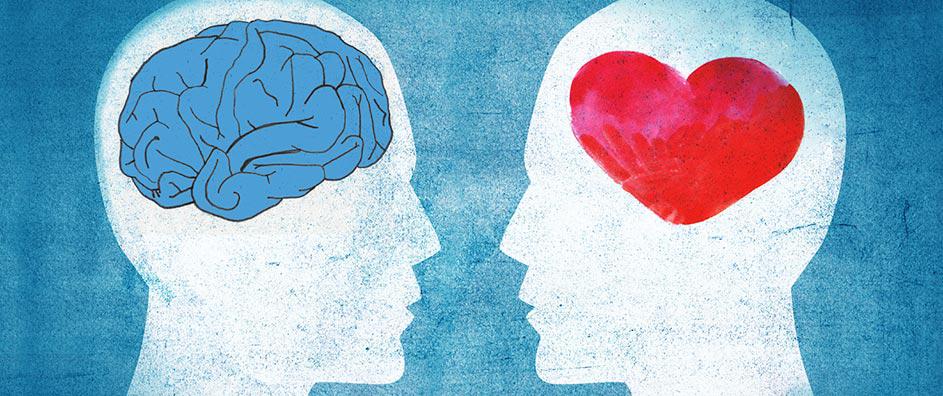The exploration of the intersection between human conscience and the existence of God is a profound subject that invites both contemplation and rigorous examination. The Bahá’í teachings provide a unique perspective on this intricate relationship, positing human conscience as a divine sign indicative of God’s presence and guidance in our lives. This article delves into the various aspects of this viewpoint, elucidating the multifaceted dimensions of conscience, the nature of divine signs, and the implications for spiritual and moral development.
At its core, conscience can be understood as the innate ability to discern right from wrong, a moral compass that guides human behavior within a complex societal framework. Bahá’í teachings articulate that this faculty is not merely a product of social conditioning or evolutionary biology, but rather a divine gift bestowed upon humankind to facilitate the recognition of moral truths and virtuous actions. The existence of conscience aligns with the Bahá’í belief in a just and loving God who has endowed humanity with the capacities necessary for moral predication and ethical behavior.
The concept of divine signs is integral to the Bahá’í faith, as these signs are manifestations of God’s will and purpose. They serve as evidence of God’s existence and His continuous interaction with creation. Within this framework, human conscience emerges as one of the most profound signs. It is a reflection of the divine attributes encapsulated within each individual, offering insights into spiritual truths that transcend mere intellectual understanding. This notion posits that the moral intuitions inherent to the human experience are linked to a higher reality, revealing the interconnectedness between the divine and the human spirit.
The recognition of conscience as a divine sign raises critical questions concerning the nature of morality. If conscience is a manifestation of divine influence, how does it inform our perceptions of good and evil? In the Bahá’í view, moral understanding is dynamic and evolves according to the growth of human knowledge and societal progress. Consequently, the responsibility of individuals is to cultivate their conscience, fostering an awareness that is both personal and universal. This cultivation involves introspection, reflection, education, and an ongoing commitment to ethical living that aligns with the principles of justice, unity, and compassion.
Moreover, the cultivation of conscience is not solely an individual endeavor; it has communal dimensions that impact collective consciousness. The Bahá’í teachings advocate for the promotion of consultative processes and collaborative decision-making as essential mechanisms for nurturing moral development within communities. This communal aspect underscores the belief that moral progress is inherently linked to the well-being of society as a whole. Thus, as individuals refine their consciences and align their actions with moral imperatives, societal transformation can take root, evidenced by enhanced social harmony, reduced conflict, and the promotion of justice.
In discussing the proof of God through human conscience, it is essential to address the interplay between conscience and human experience. Each individual’s conscience is influenced by personal experiences, cultural背景, and exposure to diverse moral philosophies. However, despite these variances, the underlying discernment of fundamental moral truths remains remarkably consistent across cultures and eras. This universality serves as testament to the existence of a divine source guiding humanity toward a shared understanding of right and wrong. It further highlights the notion that the existence of God is reflected not only in the external world but is intricately woven into the fabric of human experience itself.
Critically examining the relationship between conscience and divine signs also demands scrutiny of the challenges faced by individuals in adhering to their moral intuitions. The proliferation of relative moral standards and the increasing complexities of modern life can obscure the clarity of one’s conscience. In this light, the cultivation of spiritual practices, such as prayer, meditation, and study of sacred texts, is essential for attuning oneself to the innate messages of conscience. These practices foster a stronger connection with the divine and enable individuals to navigate moral dilemmas with a heightened sense of awareness and purpose.
Another pivotal aspect of this discourse revolves around the implications of conscience for interfaith dialogue and mutual understanding among diverse religious communities. Since the Bahá’í teachings emphasize the unity of all world religions, a shared recognition of conscience as a divine sign serves as a bridge between varying beliefs, fostering communication and collaboration. Emphasizing common moral ground allows for constructive discourse on ethical issues, transcending traditional religious boundaries and accruing collective wisdom for societal benefit.
In conclusion, the Bahá’í perspective on human conscience as a divine sign provides compelling insights into the profound relationship between humanity and the divine. It calls upon individuals to recognize, cultivate, and affirm the moral truths that reside within them while also engaging collaboratively with others to foster a culture of ethical awareness. Conscience is not merely an internal guide; it is a vibrant testament to the existence of God, urging humanity towards unity, justice, and compassion. As individuals and communities endeavor to embody these teachings, the world may witness a renaissance of moral consciousness, punctuated by a renewed commitment to the collective well-being of all. Ultimately, the realization of conscience as a divine gift invites a transformative journey toward spiritual enlightenment and ethical living, illumined by the light of God’s presence in every human heart.
